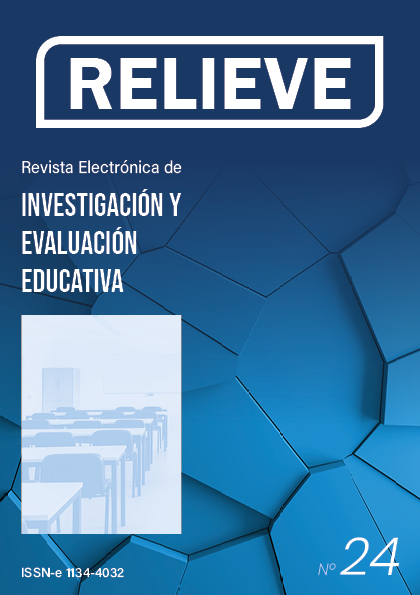Actitudes hacia personas refugiadas y ciudadanía europea inclusiva. Análisis para una propuesta educativa intercultural con el profesorado en formación
DOI:
https://doi.org/10.7203/relieve.24.2.13320Palavras-chave:
interculturalidad, Actitudes hacia refugiados, profesorado, ciudadanía europea interculturalResumo
La reciente crisis migratoria ha multiplicado el número de personas en edad escolar que migran forzosamente. La integración de los menores en los países de acogida exige no solo su escolarización sino una inclinación de la comunidad educativa para aceptar dicha realidad y gestionar críticamente las políticas europeas migratorias. A nivel europeo hay un creciente rechazo hacia el fenómeno migratorio y hacia las políticas europeas. El estudio analiza las actitudes hacia los refugiados mediante la percepción de amenaza real y simbólica y las reacciones afectivas que los futuros profesores experimentan. Además, explora en qué medida las actitudes hacia los refugiados se relacionan con una ciudadanía europea inclusiva. Se trata de una investigación mediante encuesta (una muestra de 624 estudiantes de los últimos años de magisterio del sureste español) con un diseño transversal. El instrumento utilizado es una versión modificada de la escala de actitudes y una escala de ciudadanía europea inclusiva de elaboración propia. Los resultados muestran una marcada indiferencia hacia las cuestiones relacionadas con las personas refugiadas, no existiendo una amenaza percibida elevada ni reacciones emocionales marcadas. Si bien las actitudes hacia refugiados no son muy positivas, sí existe una ciudadanía europea inclusiva positiva que legitima la acogida de refugiados de los estados europeos, la cesión de iguales derechos y posibilidades de nuevas formas de convivencia. El estudio manifiesta una marcada correlación entre las actitudes hacia los refugiados y la ciudadanía europea inclusiva, donde la amenaza percibida aparece como principal predictor de ciudadanía inclusiva. Los resultados nos permiten situar a estos futuros docentes dentro del panorama europeo como uno de los sectores sociales menos afectados por la creciente xenofobia y descrédito hacia la Unión Europea. No obstante, son precisos y urgentes programas de formación en educación intercultural, antirracista y de atención a los refugiados.
Downloads
Downloads
Publicado
Como Citar
Edição
Secção
Licença
Los autores ceden de forma no exclusiva los derechos de explotación de los trabajos publicados a RELIEVE (a los solos efectos de favorecer la difusión de los artículos publicados:firmar contratos de difusión, de integración en bases de datos, etc.) y consienten que se distribuyan bajo la licencia de Creative Commons Reconocimiento-Uso No Comercial 4.0 International (CC-BY-NC 4.0), que permite a terceros el uso de lo publicado siempre que se mencione la autoría de la obra y la fuente de publicación, y se haga uso sin fines comerciales.
Los autores pueden llegar a otros acuerdos contractuales adicionales e independientes, para la distribución no exclusiva de la versión del trabajo publicado en esta revista (por ejemplo, incluyéndolo en un repositorio institucional o publicándolo en un libro), siempre y cuando se cite claramente que la fuente original de publicación es esta revista.
La mera remisión del artículo a RELIEVE supone la aceptación de estas condiciones.














